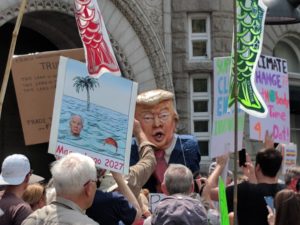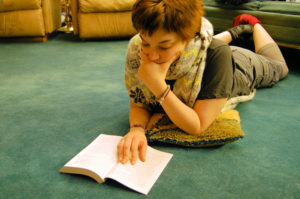This Trump Hater is Willing to Praise Trump
I am one who thinks Donald Trump is the worst thing to happen to the United States of America in my lifetime, maybe in history. He has wrapped his presidency in–and pushed the country’s culture toward–bullying, bigotry, broken promises, and baksheesh (money corruption). He has no grasp of policy and seems to be governed (and governing) by whim. He takes a scary number of memes from the Nazis. He appoints people who are ruthless, openly corrupt, and bent on sabotaging all the progress of the past 80+ years. I’ve marched in the streets opposing his policies dozens of times since he was elected.

Yet, unlike some Democrats–it’s not just Republicans who can put building their party ahead of building their country and their planet–I publicly congratulate him for agreeing to the summit with Kim Jong Un, and I pledge to publicly congratulate him if some genuine good comes out of it. We have to talk with our enemies to make peace with them. I’d like to see a similar summit with the Iranians.
Much as I’d be thrilled if it happens, my expectations of something great occurring at this meeting are low. I’m expecting these two dangerous madmen to shout and grandstand and at best not accomplish anything, at worst, push us closer to nuclear war. Go ahead, Donald, make my day: prove me wrong!
[Postscript, June 12, 2018]. I have just seen the declaration issued by the US and North Korea following the summit. While the accord is very weak on specifics, I think it’s a strong first step. It might even be the first actual good thing of the DT presidency. As a statement of intent, it is eloquent. Now of course we have to see how it’s implemented and whether it’s more than hollow rhetoric. Anyway, I am keeping my promise and praising this agreement. It’s more than any other president has accomplished on North Korea. But it’s only the first step in a long process.


